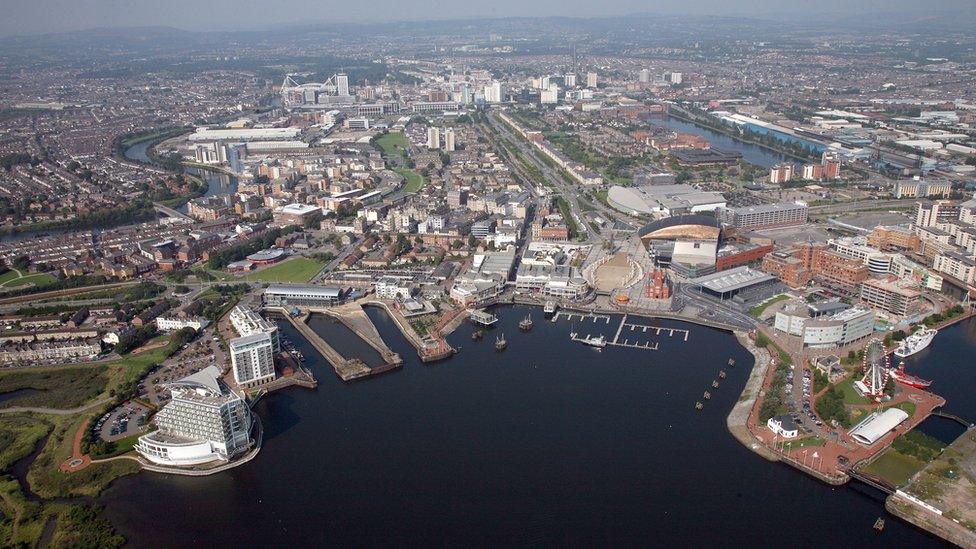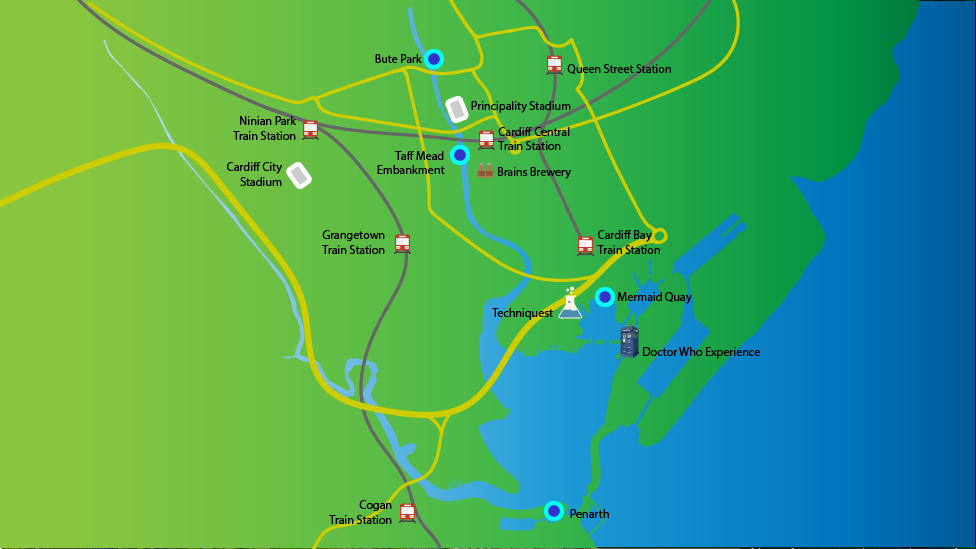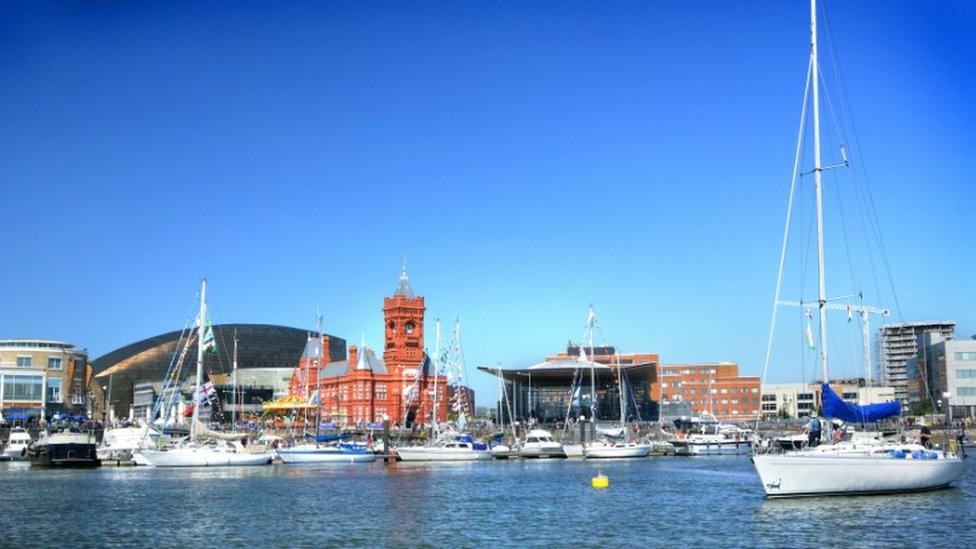Cardiff water buses have 'enormous potential' as users grow
- Published

A record 200,000 people are expected to have travelled on Cardiff's waterways in 2016-17 when figures are released in May, the harbour authority has said.
This is almost three times the 72,000 ferried when they opened in 2002.
But with five million people visiting Cardiff Bay annually, operator Danny Rees said there was "enormous potential" for increasing this number.
Consultant Steve Woodward said a franchise system would allow one company to heavily invest in routes.
When Prince Albert of Monaco was in Cardiff for the 2015 rugby international between Wales and England, he travelled from his bay hotel to the stadium by water taxi.
With nine stops including, Penarth, Mermaid Quay (the bay), Grangetown, the city centre and Bute Park, calls have been made for more people to follow his lead.
"We barely scratch the surface (with numbers). It has the potential to be an alternative bus service," said Danny Rees, one of 13 operators on the water.
"But we get more tourists than locals - Australians, Italians, Turkish, they are used to water transport. But here it's not in our culture, our psyche."
Despite distributing thousands of flyers, an early morning commuter route he runs between the bay, Penarth and city centre attracted just a handful of passengers in six weeks.
Water bus operator Danny Rees: 'We can develop a commuter route'
However, his 90-seater Princess Katharine takes about 1,000 people a day in summer with all operators saying they cannot meet demand for travel on rugby international days.
And with unused berths at Leckwith, near Cardiff City Stadium, and the international sports village, plus the once-discussed idea of a stop near Sophia Gardens cricket ground, Mr Rees believes there is potential for ferrying more big-match crowds.
He also believes water services could be better connected to Cardiff Central train station.
Currently, visitors arriving there have to board a train to Queen Street, then another to the bay, before arriving at the derelict former Bute Street Station.
But Mr Rees believes encouraging more people to use Taff Mead Embankment, which is behind central station, and possible new platforms and a water stop at a redeveloped Brains brewery site could radically change the journey.
"If you got on a boat and not a train, you would approach the bay from in front, towards the picture postcard view," Mr Rees said.
"Towards the image that goes all over the world with Pierhead, the National Assembly building and Millennium Centre."

Cardiff's waterways include routes from the bay up the rivers Taff and Ely
According to consultant and director of the Aquabus service, Steve Woodward, the waterways are "crying out" for a formalised system.
But he said the current arrangements do not encourage companies to invest large sums of money.
With a 100-seater boat costing upward of £700,000 and 12-seaters at about £80,000, Mr Woodward said operators needed guarantees about potential income.
"Penarth is currently a request stop [on the Aquabus], the demand is not there because the route has not been developed," he said.
"But with imagination and commitment, a lot can be done. The river is quite shallow immediately after Bute Park, but with the right vessel, it's possible to go to Sophia Gardens, maybe further.
"There is also the potential to offer 12-seaters to apartments and businesses like the white water rafting centre and St David's Hotel."
He called for a franchise to be awarded to one company, which would allow it to invest and develop the route.
"You want an all-singing, all-dancing service, but without a corporate policy from the local authority it is a bit of a disaster," Mr Woodward said.
"You have vessels of all sizes, shapes and ages. A big stumbling block is it is a free-for-all [with many operators on the water]."

Cardiff council - in the form of the Harbour Authority - took over responsibility for the waterways after the Cardiff Bay Development Corporation was dissolved in 2000.
Over the past 13 years, nine water stops have been put in at a cost of £1m, including those at Channel View, the Doctor Who Experience and Techniquest.
Some of these are not used and with new stops costing about £200,000, harbourmaster Andrew Vye-Parminter believes money could possibly be spent in other areas.
He suggested improving those already in place such as providing covered waiting areas.
"Commuter routes have been investigated and first looked at 10 years ago," he said.
"However, many issues need to be weighed up, such as demand, cost, speed, price compared to putting an extra bus on the road and weather - such as river flows preventing it from operating."
He also said there is only a "finite area" of water, with the authority wanting to keep it open to all vessels, such as sailing boats, yachts and canoes.
But the authority will "encourage and support" ideas, such as any future proposals relating to the Brains site, he added.